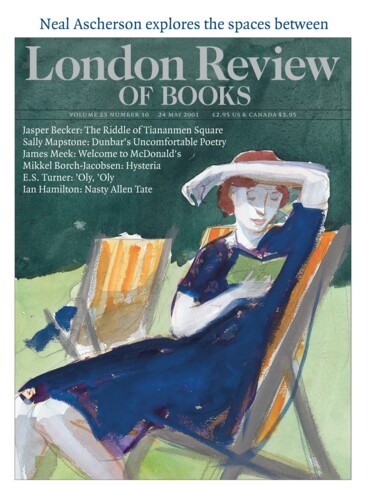For Nikos
The Union of Moldavian Cinematographers
had a film archive
where they showed European and American movies,
but only to members of the Union itself.
Located in a large crimson villa
built by the Dutch architect Bernardadsey
in the New Tradition style,
the place was surrounded by a handsome
wrought iron grille
and guarded from within by a Soviet militia woman.
The villa faced the city prison on the other side of the plaza.
A square ‘park area’ scantily planted with trees
lay in between. In winter the park
became transparent, black and white.
Two distinct crowds would often gather there:
those coming to see a film,
and those coming to see a relative in the prison.
The former loudly debated Visconti and Bergman,
while the latter stared at the snow and shared booze,
smoking self-rolled cigs and spitting.
Every member of the Union was entitled to invite
one adult guest. One evening, in late December 1980,
just a few days before New Year’s Eve,
my friend Liuba, a young animator artist,
called to remind me to bring my passport
to ‘verify my age’, so that she could take me to see
Fellini’s Amarcord.
We met at an empty bus stop and walked
across the icy park. It was freezing cold,
the air was pregnant with snow.
The olive trees and mulberry shrubs
stood bare, waiting to be covered.
We entered the foyer;
a warm velvet dusk wrapped around us.
Liuba insisted on treating me to champagne
in the buffet. ‘It’s dirt-cheap here,’ she said,
‘for the elite.’ We waited in a line;
nobody seemed to be in a hurry.
Soon we plumped down on purple seats
in the huge and almost empty auditorium,
and the lights went out. The film
was like open heart surgery.
Amore cordova – a deep bright wound
on the body of my life!
Three hours later
grey-suited gentlemen in the foyer
were receiving their coats.
Someone stepped on my foot; I raised my eyes
and recognised a celebrity of the season. He was drunk.
Many of them, as Liuba would explain later,
came here to drink, rather than watch a ‘restricted’ movie.
We stepped out into the winter night.
It was even colder now, so cold
that the cigarette almost froze to my lip.
Random human shapes criss-crossed by street-lamp light
ran along hump-backed lanes as we walked
home across the town. The buses had stopped running
an hour ago. After ten minutes of walking it began to snow.
Liuba shook her blonde head like a dog and yelled
‘Amore cordova . . .’ Two echoes returned
from limestone houses
drowning in the lucid darkness.
Snow fell on the river, even under the bridge,
on the equestrian
Monument to the Revolutionary Rider,
turning the horse into a winged sphinx and the man
into an angel. It fell on government buildings
and railroad workers’ homes alike,
on wineshops, buses in the bus park, on asphalt
and the glazed surface of the pond.
Crossing Lenin Street I turned my head
and saw the ghost of a bus glowing white.
I raised my hand and it stopped and the front door opened.
The front seats were in those days
upholstered with imitation leather.
The driver’s strong Moldavian accent
was mellifluous as he told us a joke:
‘It’s winter. Two street vendors are having an argument.
The first says the temperature is 5° centigrade.
The other says no, it’s 10! The first thinks for a second
and agrees: OK, 7 and the temperature’s yours!’
Send Letters To:
The Editor
London Review of Books,
28 Little Russell Street
London, WC1A 2HN
letters@lrb.co.uk
Please include name, address, and a telephone number.

